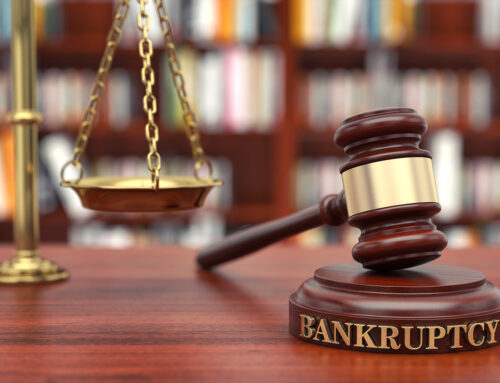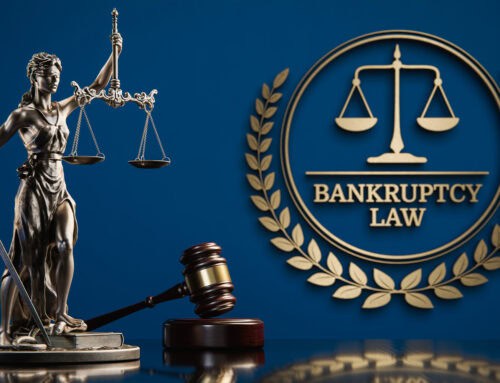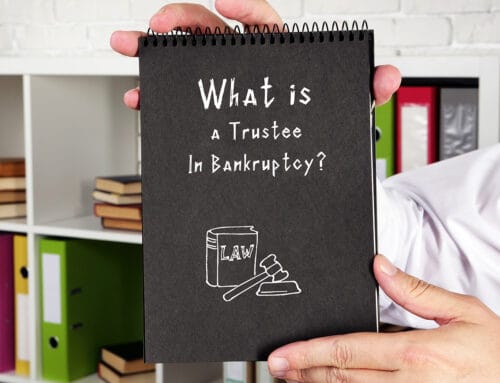Will Bankruptcy Affect Your Job or Future Job?
If you are considering filing for bankruptcy, you probably have some questions and concerns about making your decision. You may wonder which chapter of bankruptcy you can file or whether you have too many assets to file. One of the questions that usually come to the surface is what impact filing bankruptcy may have on your current job or the ability to obtain future employment. This article answers questions you may have about bankruptcy and employment.
Will My Employer Find Out About My Bankruptcy?
If you don’t want your employer to know that you filed for bankruptcy, then there should be no reason they would learn about it. No regulations exist that require employers to be notified of employee bankruptcy filings. A couple of caveats exist, but they aren’t related to employment notification from the bankruptcy court or trustee. If you file for bankruptcy, there are three ways an employer could uncover the truth.
- 1. In some cases, a Chapter 13 bankruptcy trustee may order that your payments to the creditor be withheld from your paycheck in the form of garnishment. If you file Chapter 13 in a jurisdiction where this is the case, the payroll department would see the garnishment. Even in small organizations, payroll department employees aren’t likely to disclose the information to the business owner or immediate supervisor. Truth be told, there are probably numerous employees whose paychecks are garnished for various circumstances.
- Speaking of wage garnishments, you may already experience those in some form if you have one or more judgments against you. Garnishments and credits pursuing collections may play a role in your decision to file bankruptcy. If this is the case, your employer (payroll department) will receive a notice so that those garnishments can end.
- Far less common, but it does happen, is when you owe your employer money, and you list them as a creditor on your disclosures. In this case, your employer would be notified the same as all your other creditors against which you filed bankruptcy.
Can My Employer Fire Me for Filing for Bankruptcy?
Employers don’t have the right to fire you for filing for bankruptcy protection. Moreover, employers can’t change the terms of your employment due to filing bankruptcy. For instance, your employer can’t reduce your salary, prevent you from promotion, or strip you of job duties for filing.
Employers can fire you for other issues, including insubordination, too many absences, job performance, and things like this, but not for anything about bankruptcy. Keep in mind that some states are hire-at-will, which means they don’t require justification to terminate employment. However, if you are fired immediately upon your employer learning about your bankruptcy filing, and you’ve been given no other critical feedback or reason for termination, you may benefit from speaking to an attorney to determine if discrimination occurred.
Will My Bankruptcy Prevent Me From Future Employment?
While your current employer can’t fire you for filing for bankruptcy, future employment could be negatively impacted. However, no government agency at any level is allowed to include bankruptcy filings as a factor for consideration during employment decisions. Private employers are a different matter.
Some employers require credit checks as part of their screening process. Since bankruptcies appear on credit reports, a potential employer will see your bankruptcy. It is unlikely that a bankruptcy filing would prohibit you from employment in a role that doesn’t have anything to do with money or loans. However, banks, lending institutions, and businesses hiring for positions that deal with money or accounting may disclude you from consideration.
Who Can I Talk To if I Have More Questions?
Nearly 800,000 people have filed for personal bankruptcy over the past five years, and most of those are Chapter 7. While there are some instances where your bankruptcy filing could impact future employment, the odds are that your employment—whether current or future—will not likely be impacted. If you still have concerns, you should consider speaking to an attorney at Brent George Law for expert legal advice.
Disclaimer: This article is intended for informational purposes only and does not constitute legal advice. For personalized assistance, please contact our office at (805)494-8400.





